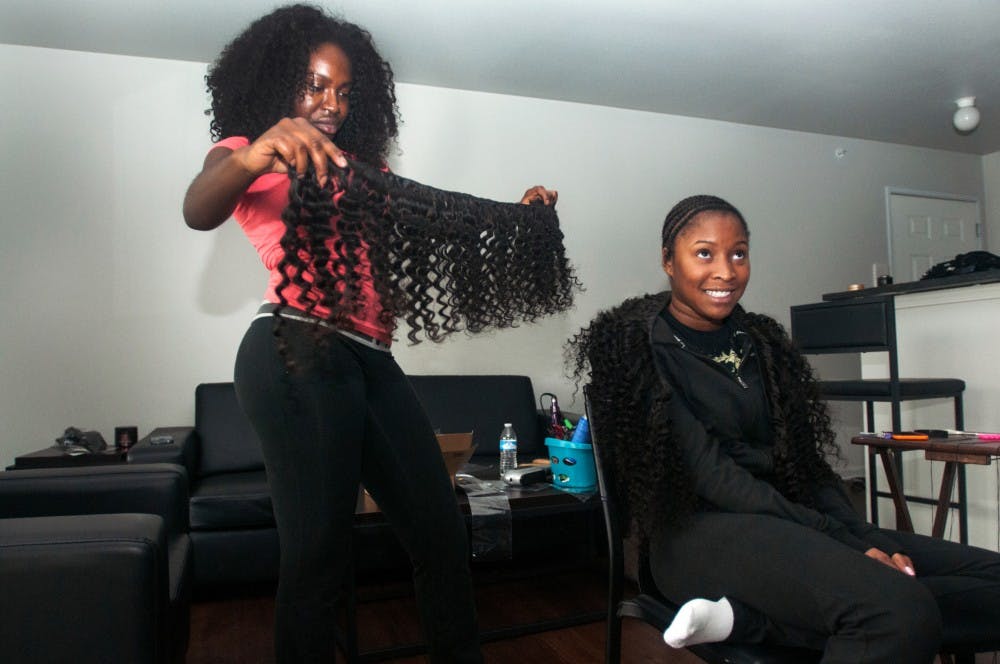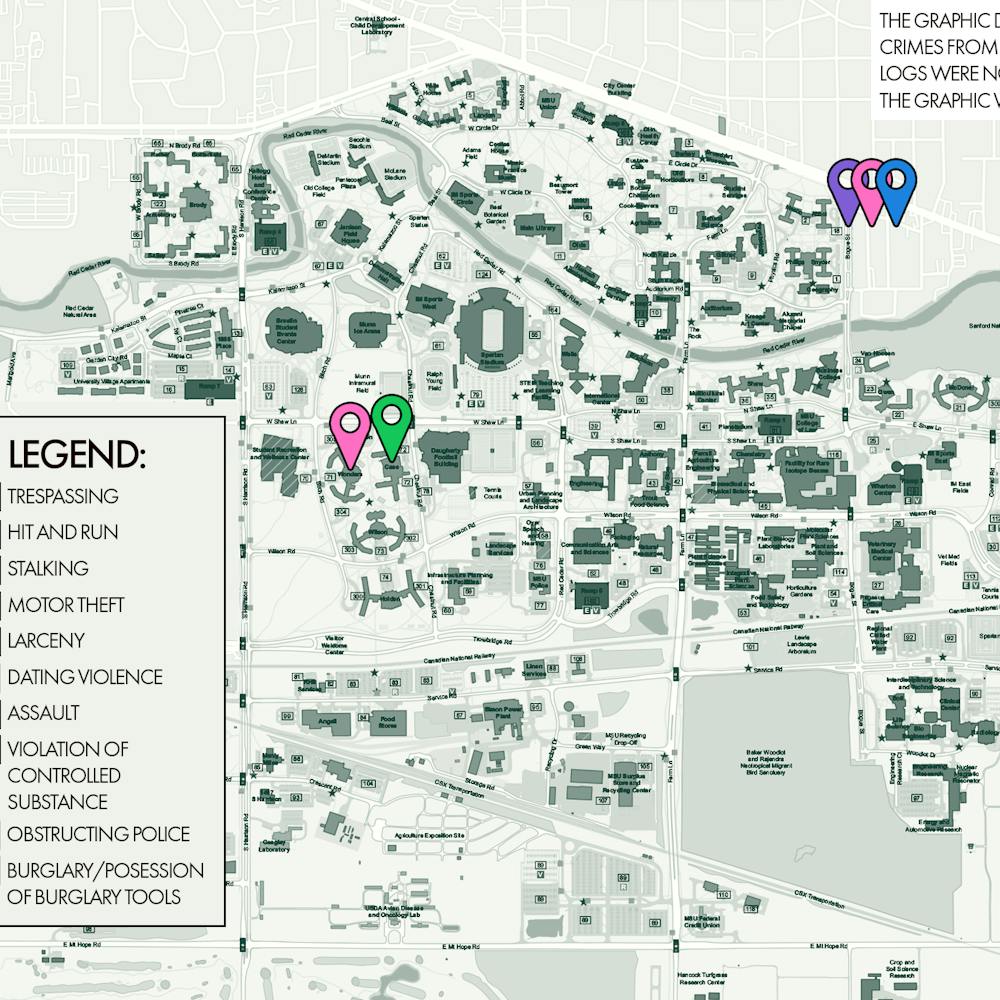African American students specifically have noticed a lack of stylists in the East Lansing area who know how to do their hair properly. Some students have taken matters into their own hands by starting in-home salons, while others travel back to their hometown just to get a “new ‘do.”
“We need salons up here, it’s a hassle going all the way home to get your hair done and coming all the way back up here. I don’t like it,” Ajah Chandler, a chemical engineering sophomore, said. “The salons up here are mostly for white people.”
Because of the diversity and specialized care required for African-American hair, properly educated stylists are required.
One of the larger beauty salons in the area, Douglas J. Aveda Institute on Grand River Avenue, is not prepared to style ethnic hair. Scott Weaver, president of the salon, said they do not perform twist-outs, braids or sew-ins — three of the most popular styles for black women.
Human biology sophomore Kierra Watkins made an appointment at the salon to have her hair washed and straightened. However, she said the stylist did not use a pressing comb, a commonly used tool to straighten ethnic hair.
Watkins said she was unhappy with the results she received after leaving the salon.
“It was still thick and my roots were not straightened they were wavy,” Watkins said. “It felt like my hair got rained on.”
To address the problem, some students have even decided to start their own in-home hair businesses. Food science senior Uché Onwudiwe began doing hair at MSU during her freshman year in 2012.
She started doing hair to make a few bucks, but then she realized numerous women struggled to find a good salon and desired her services. She does styles ranging from blow dry and press, box braids and Senegalese twists. She also does hair of people from other ethnic backgrounds, including white and Asian women.
A fairly new group on campus known as “CurlFriends" has also recognized the struggle with getting their hair done properly. This organization is structured around how to maintain African-American textured hair.
“We don’t have the support of MSU’s campus,” Ambrigail Smith, president of the group and an interior design senior, said. “It’s difficult walking around and feeling like people don’t understand your hair because it is different and unique.”
Smith said she wanted to create a community where people could feel comfortable with their hair, be able to ask questions about how to care for it and to be assisted with patience.
“Finding someone you are comfortable with enough and who is educated on black hair is really difficult,” Smith said. “Salons around here just want to comb it and flat iron it and are not able to do natural styles.”







